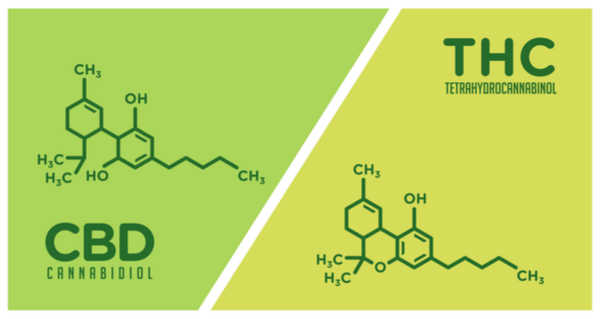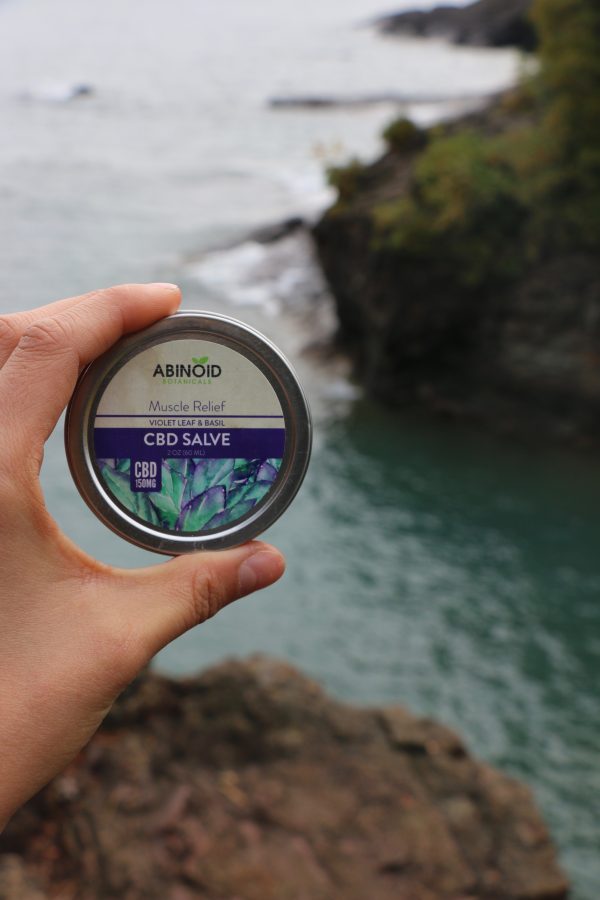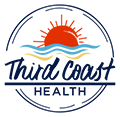CBD vs THC: What’s the Difference?
CBD vs THC
There is a lot of confusion out there today as to what CBD is, where it can be found, and what it’s intended uses are. Many people often mix up CBD and THC or believe they are interchangeable with one another. While they do share many similarities, the compounds have very different effects when they interact with your system.

CBD and THC Similarities
Both THC and CBD compounds occur naturally in cannabis plants. They have a very similar chemical composition as well, varying only slightly from each other. You can also consume the two in the same ways, either through capsules, edibles, lotion, smoke, etc.
Each one also interacts with a person’s endocannabinoid system. This is an important network of cellular receptors throughout your body that help maintain balance and equilibrium in your system. Your endocannabinoid system has a key element that THC and CBD react with, called a CB1 receptor. THC is a perfect fit for these receptors and together they produce the “high” most commonly associated with cannabis. CBD does not fit with CB1 receptors in the same way as THC, and also prevents THC from activating with that CB1 receptor. This means CBD mitigates the intoxicating effects of THC. More on that later.
Effects of THC
Tetrahydrocannabinol, or THC, is the main psychoactive component in cannabis. THC is the chemical responsible for a person’s “high” when they consume marijuana in any of its many forms. This is because of the way it reacts with CB1 receptors.
There are also many laws surrounding THC and marijuana use. You need to either live in a state that requires a medical marijuana card or one that has legalized the use of THC recreationally for adults to gain access to the substance.
Using THC can have many adverse effects on the human body, especially with prolonged use. THC can affect your memory, making it harder to concentrate on important tasks or keep track of plans. People have also been known to become lethargic and sleepy or suffer from anxiety attacks and paranoia. Dry mouth and dry eyes are also common symptoms associated with an overuse of THC, causing users to seek eye drops and other treatments for relief. An increased appetite is also common which can lead to weight gain if not held in check.

Effects of CBD
Cannabidiol is known for delivering a clear-headed functional effect for the user, leaving out any of the euphoric effects that are commonly associated with smoking weed or using other cannabis products.
People most commonly use CBD products as supplements to help support their health, like CBD oil. This is a supplement containing a specific amount of CBD and is used in conjunction with other products for numerous reasons. CBD oil can help in instances of great stress and can help calm a person’s mood. Those who suffer with insomnia or other sleep disorders have used the oil in conjunction with other treatments to find restful sleep. Athletes have also been known to use CBD oil to assist with inflammation and relaxation.
Hemp vs Marijuana
Two of the most common types of cannabis are hemp and marijuana, but the concentrations of THC and CBD differ depending on which one you are using. Marijuana has a high content of THC and low content of CBD. This means that while CBD can be derived from the plant, it also comes with a much larger concentration of THC and all the effects that come with it. This is why more people use this strain of cannabis for their “recreational” needs because it is much more difficult to extract THC from hemp plants.
Hemp, however, is very low in THC, but high in CBD. This makes it easier to collect and you can get a more pure form of CBD. At Third Coast Health, we source all our CBD products from hemp and have them independently tested to make sure there is less than 0.3% THC in everything we sell. We are committed to providing quality CBD products for all our customers, no matter their needs.
CBD and THC Legality
Recently, hemp was de-scheduled through the 2018 Farm Bill. This means that CBD derived from hemp is legal as long as it contains less than 0.3% THC. However, THC still remains scheduled and illegal unless you live in a state that has additional laws pertaining to its use. Maine, Vermont, Massachusetts, Michigan, Alaska, Colorado, California, Nevada, Oregon, Washington State, and Washington D.C. have legalized marijuana for recreational use. 33 states total allow the use of medical marijuana, obtained through a doctor using a medical marijuana card.
Interested in learning more about CBD products? Check out our shop for all the latest and greatest items. Connect with us on Facebook and Instagram for giveaways and specials!
